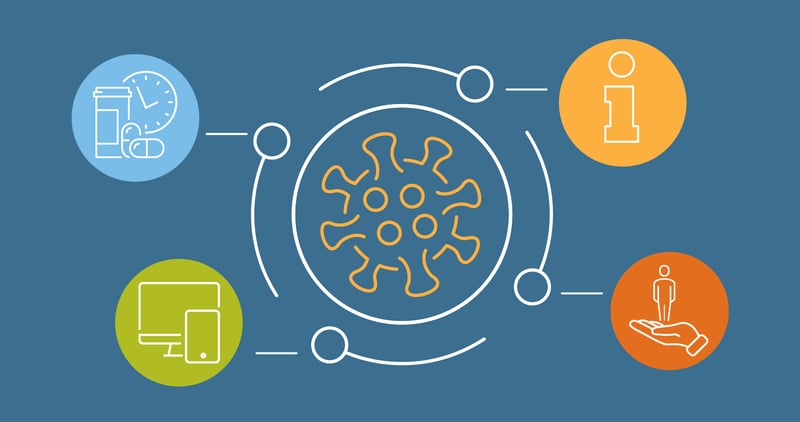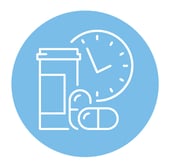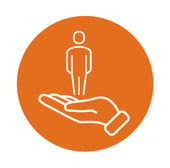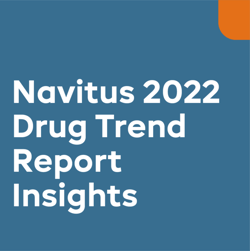Amid the COVID-19 event, engaging with your members has never been more important. They may be worrying about not only their health, but also the virus’ economic impact upon their household.
According to a recent poll, 42% of all U.S. adults say they or their spouse/partner has had their income or employment impacted by the coronavirus outbreak. In addition, about one in ten say coronavirus-related stress has led to worsening chronic health conditions. Negative health impacts are highest among households with health care workers or loss of employment.1

During this time, it’s vital to support your employees with tools to maintain their health, both physically and mentally. Here are four tips to help you communicate with your members as they navigate the road ahead.
TIP #1: PROMOTE THE VALUE OF ADHERENCE
The costs of medical non-adherence is well documented, including poor health outcomes, additional illnesses, and billions in  unnecessary health care expenditures each year. In fact, medication non-adherence costs the US healthcare system an estimated $495 billion - $675 billion annually.2
unnecessary health care expenditures each year. In fact, medication non-adherence costs the US healthcare system an estimated $495 billion - $675 billion annually.2
But now, a new barrier to adherence has emerged - the economic stressors brought on by the coronavirus. Under normal circumstances, cost is the main reason that more than half of patients do not take their medications as prescribed. However, with COVID other medication adherence barriers have emerged. Unemployed patients who once could afford their copays are now compelled to prioritize other essential items over their health needs.3 Others have lost access to transportation and simply can’t get to a pharmacy.
This presents an opportunity for plan sponsors to increase awareness about medication adherence and communicate the savings opportunities within their pharmacy benefit plan. These may include, but are not limited to:
- 90-Day Refills (Retail or Mail Order)
- Generic Prescription Savings
- Tablet-Splitting
- Copay Assistance Programs
TIP #2: DEVELOP A MULTI-CHANNEL APPROACH TO COMMUNICATIONS
As the coronavirus event drags into its sixth month, members may be feeling more isolated. Disruption of their daily activities has  led to increased use of digital and virtual solutions to connect. As a result, plan sponsors’ communication strategies need to evolve as well.
led to increased use of digital and virtual solutions to connect. As a result, plan sponsors’ communication strategies need to evolve as well.
In addition to showcasing your own online tools, leverage your PBM’s tools including electronic communication, real-time benefit check and pharmacy search tools. And don’t underestimate the value of a phone call to a real person, who takes a sincere interest in solving the issue at hand – that human connection. Reassure your members that your PBM’s Customer Care team is working hard to ensure that services remain consistently reliable and stable throughout the event.
By developing a multi-channel approach, plan sponsors give members easy access to educational tools and information in a format they can understand, with clear recommendations they can act on to improve health.
TIP #3: PROVIDE HONEST, BUT REASSURING, INFORMATION
During times of crisis, members need straightforward, frequent communication from trusted sources. Make  sure you are providing timely access to accurate information, critical services and resources to keep them safe and connected. This is your opportunity to be a reliable, consistent source of information. If you need additional information to communicate with your members about their pharmacy benefits, reach out to your PBM. Examples might include treatment information, pharmacy network updates, potential drug shortage notices or tips on how to enroll in a 90-day refill program.
sure you are providing timely access to accurate information, critical services and resources to keep them safe and connected. This is your opportunity to be a reliable, consistent source of information. If you need additional information to communicate with your members about their pharmacy benefits, reach out to your PBM. Examples might include treatment information, pharmacy network updates, potential drug shortage notices or tips on how to enroll in a 90-day refill program.
TIP #4: REMAIN MINDFUL OF MEMBERS’ MENTAL WELL-BEING
It’s challenging to maintain a healthy lifestyle when in the middle of a crisis. The uncertainty about the future, constant media coverage and the flood of social media messages can increase members’ anxiety. Stress during situations like this is normal.
As a potential remedy, consider sharing tips on how to manage stress and social isolation, how to stay engaged with the broader community and provide resources for those who may need additional support. Resources include:
National Suicide Prevention Hotline
1.800.273.TALK (8255) (English)
1.888.628.9454 (Spanish)
National Domestic Violence Hotline
1.800.799.7233 or text LOVEIS to 22522
Veteran’s Crisis Line
1.800.273.TALK (8255) or text TALK to 8388255
During these unprecedented times, allow yourself to provide everyone with timely access to the information and resources they need. Let’s all expand our ability to listen, learn and turn those learnings into a better experience.
1. KFF Health Tracking Poll. Kaiser Family Foundation. https://www.kff.org/report-section/kff-health-tracking-poll-late-april-2020-economic-and-mental-health-impacts-of-coronavirus/?utm_campaign=Corporate%2FGeneral&utm_source=hs_email&utm_medium=email&_hsenc=p2ANqtz-_eX3rBkWbyMyrJpY97N28sDCfyF9hEAFinABBDFqHgpxojug-nIfaFUI1xh8GICn1TtZYw. Published April 24, 2020. Accessed July 6, 2020.
2. Does Nonadherence Really Cost the Health Care System $300 Billion Annually?. Pharmacy Times. https://www.pharmacytimes.com/contributor/timothy-aungst-pharmd/2018/06/does-nonadherence-really-cost-the-health-care-system-300-billion-annually. Published June 1, 2018. Accessed July 6, 2020.
3. Adherence Takes Hit During Pandemic. Pharmacy Times. https://www.pharmacytimes.com/publications/supplements/2020/June2020/adherence-takes-hit-during-pandemic. Published June 25, 2020. Accessed July 6, 2020.




